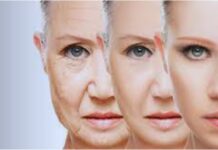The current generation is slowly becoming a sleepless one. With people developing terrible sleeping habits because of prolonged usage of technology (especially because of the Internet), consumption of stimulants, and working at hours that go against one’s internal body clock, we’ve somehow normalized sleep deprivation.
After a tiring day at work or at school, we should plop down unto our beds and get some shuteye. But sometimes, no matter how tired we are, we just can’t seem to fall asleep. We can usually blame it on poor sleeping habits, but there are cases where even proper bedtime practices aren’t enough. Other forces are at work here, and we’re here to explore some of them.
-
Hormone Imbalance
Human bodies have endocrine glands that secrete hormones that regulate different biological processes. The hormones that can affect how we sleep are mainly melatonin and cortisol. Melatonin is a hormone produced by our pineal gland that can induce sleep by sending signals to our brain that it is time to hit the sack. Cortisol, on the other hand, is a hormone that influences alertness and energy in response to stress. You don’t want high cortisol levels at night if you want to get some sleep.
Unfortunately, as we age, hormone levels naturally begin to decline and become imbalanced, especially once we’ve passed our thirtieth birthday. And of course, this imbalance causes some hormones to spike or get dangerously low, resulting in sleeping problems and other complications in the body. For example, when women become menopausal, a significant decline in estrogen occurs, which can cause night sweats, hot flashes, and insomnia. Adult men with declining testosterone and pregnenolone levels can also suffer from discomforts which can make sleeping difficult. Some people try to restore the balance by following a certain diet, exercise regimen, or by undergoing hormone replacement therapy.
-
Sleep Disorders
There are over eighty sleeping disorders that are classified into three main categories: lack of sleep, disturbed sleep, and excessive sleep. The most common one that people suffer from is insomnia, which is classified under lack of sleep. Insomnia is a disorder that can be acute (experienced briefly) or chronic (recurring), and is characterized by difficulty to stay asleep, thus negatively affecting one’s mood, energy levels, and how well one carries out one’s daily tasks.
Another common disorder is apnea. Apnea refers to a pause in breathing that can last for more than ten seconds. This pause can cause a person to suddenly wake up to catch their breath, resulting to a disruption of sleep.
If your sleep disorder has led to a drastic decline in your health, or if it has been causing increasingly dangerous situations such as falling asleep while driving, then you should consider seeing a sleep specialist.
-
Illnesses and medication
People who suffer from high blood pressure and depression often require medication that can obstruct sleep. Similarly, those who suffer from cancer, asthma, acid reflux, and many other illnesses causes chronic pain that makes it difficult to sleep. There are medicines available that can help dull the pain, but some of the these drugs can contain stimulants, which can also affect one’s ability to sleep.
-
Depression or anxiety
Psychological distress and even mental illnesses can be caused by or can result to sleep deprivation. Taking antidepressants can keep a person up all night as it contains stimulants, but it’s usually not just the medication that is a factor. A depressed person has a complex relationship with sleep because of their state of mental and emotional turmoil. They might sleep excessively or not at all. Some are afraid to sleep, while others want to sleep “forever”.
Anxiety can also contribute to lack of sleep. The fight-or-flight response it can trigger in our bodies can lead to a shortness of breath, a rapidly pounding heart, muscle tension, and insomnia.
In a world that is getting busier and busier, time spent for sleeping is steadily decreasing. But this can lead to a whole host of health issues, because it can’t be denied that the lack of sleep can seriously damage our well-being and even endanger our lives. Don’t hesitate to seek professional help when you feel your sleeplessness taking a turn for the worse.





